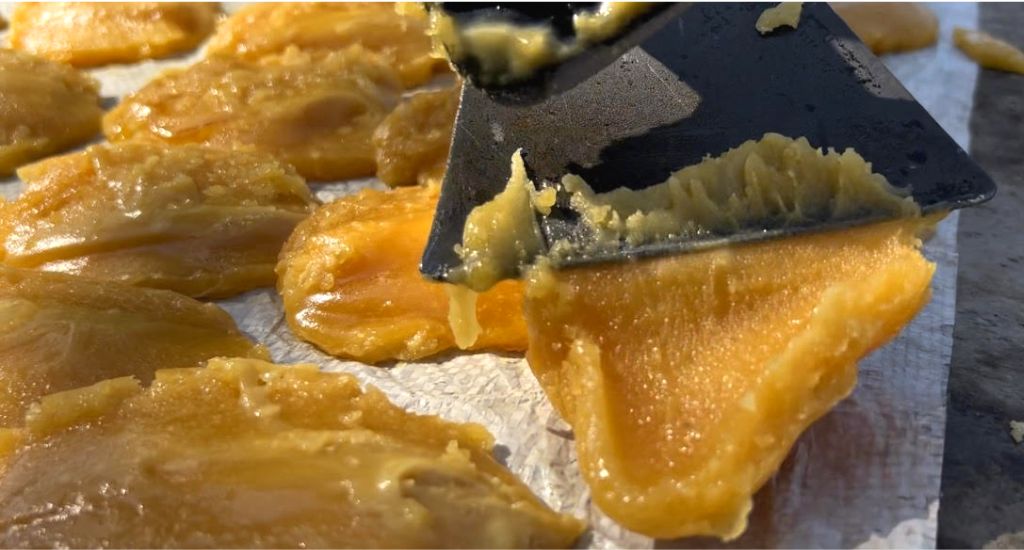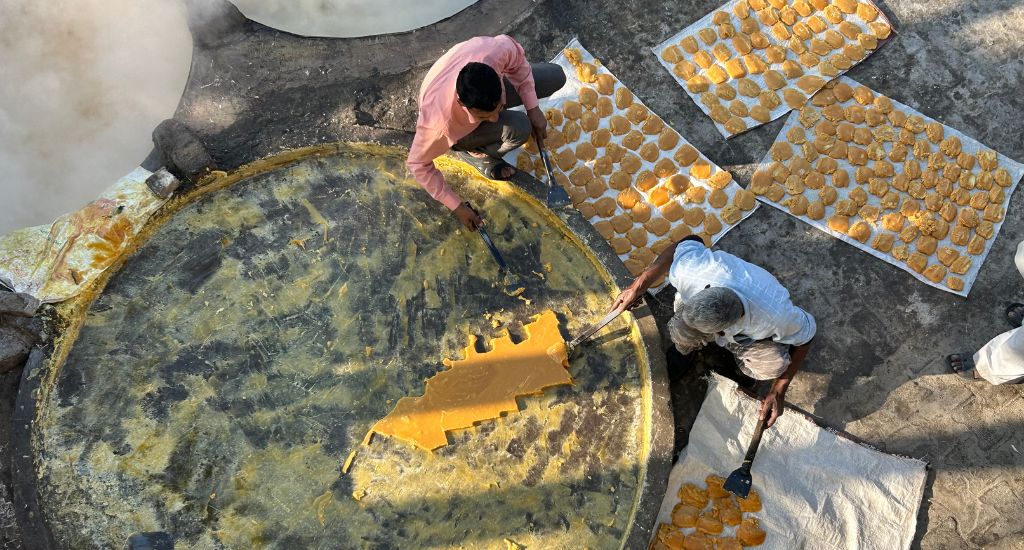
Making gur and melting hearts
The matriarch of a gur (jaggery) business in Meerut might appear tough on the outside, but Jogindra Devi’s efforts to employ and empower the people of her village are as sweet as the gur she makes.

The matriarch of a gur (jaggery) business in Meerut might appear tough on the outside, but Jogindra Devi’s efforts to employ and empower the people of her village are as sweet as the gur she makes.
A little beyond the hectic Uttar Pradesh city of Meerut is a hamlet called Dabathwa. You know you’ve arrived when you’re surrounded by acres of sugarcane.
But that’s not the only sweet thing about this village. It’s also home to many women entrepreneurs making and selling various food items.
From ghee (clarified butter) to gur (jaggery) – you’ll find the purest kinds of products made using traditional recipes.
Amongst this enterprising cohort is Jogindra Devi, a grandmother with a childlike zest for life, loved and feared alike by those who know her.

A descendent of the zamidars (landlords) of UP, Jogindra took over her deceased husband’s gur business about three years ago. She has enough money to sustain herself, yet she works day-in-day-out.
Her enterprise is about more than money.
I work and live here with Ma. She’s given shelter to me and my daughter. She pays me well too. I don’t know what I would’ve done if I didn’t have her in my life.
“The villagers of Dabathwa have had jobs because of my husband. Where would they go? I must continue this business in order to create employment opportunities for my people,” Devi said.
Suresh Kashyap is a senior artisan at the manufacturing unit, who worked for Devi’s husband for close to 27 years but has no qualms about working for a woman boss now.
“The only thing that matters is that we’re treated with respect and our work is appreciated. It’s not like we would work differently for a male boss. Jogindra ji is a taskmaster with a heart of gold. She helps us become better at our skill,” he said.
30-year-old Monu’s husband is in a rehab for alcoholics. When she and her daughter had nowhere else to go, it was Devi – whom she calls “ma” – who took her in.

“I work and live here with Ma. She’s given shelter to me and my daughter. She pays me well too. I don’t know what I would’ve done if I didn’t have her in my life,” Monu said.
For Devi, her employees are like family.
We supply locally which means we cannot sell our gur at a very high price. But as long as I can pay the team’s salary, I feel accomplished.
“Monu is like my daughter. I care about her safety,” Devi said.
The gur matriarch says it’s not easy to sustain her business in Meerut – competing with some of India’s biggest sugar mills. Sugarcane is expensive here. This combined with the cost of running the unit means Devi barely breaks even let alone make a profit.

“We supply locally which means we cannot sell our gur at a very high price. But as long as I can pay the team’s salary, I feel accomplished. This work helps me keep busy and do good at the same time,” she said with pride.
But tight margins are not the only hurdle.
Jogindra has to compete with mostly patriarchs running the same business or their sons who take over.
The caste she belongs to is primarily patrilineal, so she fights her immediate kin and the society on a regular basis to uphold the principles that she stands by.

Support or not, Devi is confident that she is here to stay and she is willing to do what it takes to protect her tribe.
The lead image at the top shows dollops of freshly made gur in Jogindra Devi’s manufacturing unit in Uttar Pradesh’s Dabathwa village (Photo by Teesta Rajan)
Teesta Rajan is the Associate Director of Village Vibe at Village Square. She is passionate about food, travel and culture.